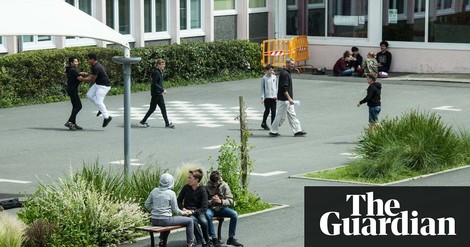Your podcast discovery platform
Curious minds select the most fascinating podcasts from around the world. Discover hand-piqd audio recommendations on your favorite topics.

piqer for: Global finds Doing Good
Graduating from 3A School of Business and Development, Nina was first involved professionally in humanitarian work as a trainer and manager in France and abroad. Her research in the field questioning engagement and altruism conducted her to work as an editor, writing articles. From 2011 to 2015, she worked in Russia as the web chief editor of a French newspaper. She’s now based in France and works as a freelancer on several projects, including writing, and trainings on Solutions journalism or Media decoding. She’s representing the Solutions Journalism Network in Europe since October 2016, which conducted her to train journalists in Denmark, Moldova, Poland, France, and Belgium, and give presentations to several newsrooms.
Going To School Without A Mobile Phone Is Good For Your Children (And They Like It)
That was one of the promises the French president made during his election campaign: that he would outlaw children’s phones in nursery, primary and middle schools, until around the age of 15. Well he kept his promise: French school students will be banned from using mobile phones anywhere on school grounds from September 2018, after the lower house of parliament passed what it called a “detox” law for a younger generation increasingly addicted to screens.
We hear a lot of the negative effects screens can have on the cerebral development of kids under the age of three, but then what? What happens to the ones spending their free time on the screens, not interacting with others?
The middle school of La Gautrais, in France, was the first to experience the ban of phones in the country. Since then, professors have noticed more social interaction between children, more empathy, and a readiness to learn at the start of lessons.
And surprisingly, the kids don't complain. They even like it.
